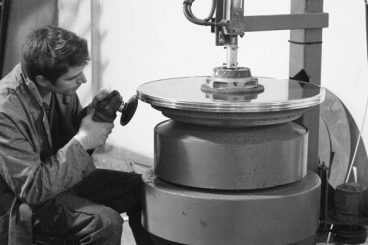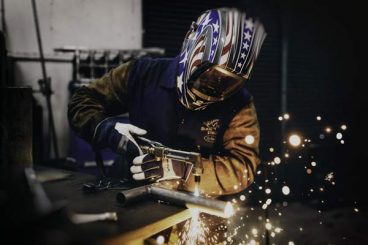This is what a job as a Die Setter is all about
 Are you interested in metal work? With the right technical skills, you could enjoy a career in die setting. From operating tools and maintaining machines, there is a broad range of responsibilities that are associated with this position. If you have great hand-eye coordination and problem-solving capabilities, this might be the right job for you. You can find die setter jobs on Job Mail.
Are you interested in metal work? With the right technical skills, you could enjoy a career in die setting. From operating tools and maintaining machines, there is a broad range of responsibilities that are associated with this position. If you have great hand-eye coordination and problem-solving capabilities, this might be the right job for you. You can find die setter jobs on Job Mail.
What is a die setter?
Die setters are responsible for setting and operating tools with the aim of producing both metal and plastic components. They are tasked with setting machines with the right specifications to adhere to the required product specifications. Some of the machines they’re responsible for setting up include forging presses and drop hammers. They also work with coining presses and upsetters. They work with dies and a range of operating devices, which are used to form or taper a variety of parts.

Another responsibility that is a part of die setting work is fixing tools. Other tasks that are associated with this position include checking parts for defects or mistakes as well as checking equipment. They’re required to assemble parts or provide instructions on how the parts need to be assembled. Die setting involves maintaining and repairing parts as well as removing dies, and they’re also required to make sample products. Die setters pick and install dies using specialised tools. In order for the product specifications to be met, it’s necessary to adjust the dies accordingly.
ddDie setters use machines to produce parts and they may be required to add details using hand tools. They use blueprints to ensure that the right configurations are used and they also get guidance from data-chart specifications. Measuring instruments are used during die setting, which includes squares and gauges.
What are the requirements for doing this job?
 Employees in this field need to have strong technical skills as well as the ability to uphold high safety standards. They need to be attentive with outstanding critical thinking capabilities, and metal work requires superior hand-eye coordination and manual dexterity. In order to succeed in their career, die setters need to be good at problem-solving and time management. Training in die setting is required for this role, and practical experience will increase your chances of being hired. Die setters need to be computer literate and have the ability to read orders and blueprints. Deductive reasoning and the ability to pay attention to detail are required. Employees in this role must be self-motivated and they should also be physically fit and able to lift heavy objects.
Employees in this field need to have strong technical skills as well as the ability to uphold high safety standards. They need to be attentive with outstanding critical thinking capabilities, and metal work requires superior hand-eye coordination and manual dexterity. In order to succeed in their career, die setters need to be good at problem-solving and time management. Training in die setting is required for this role, and practical experience will increase your chances of being hired. Die setters need to be computer literate and have the ability to read orders and blueprints. Deductive reasoning and the ability to pay attention to detail are required. Employees in this role must be self-motivated and they should also be physically fit and able to lift heavy objects.
Work conditions, qualifications and alternative job options
Die setters generally work during the usual business hours. However, they may need to work overtime when there are tight deadlines that need to be met. Die setting takes place in factories and involves manual labour.
If a career in die setting isn’t the right option for you, there are plenty of alternative jobs to choose from. Related employment opportunities include engineering tradesperson, textile mechanic, and mechanical tradesperson roles.
Now that you know more about die setting, you can work on developing the technical skills you need to succeed in this career. If you enjoy metal work, this may be the right option for you. You can find die setter jobs online today!







